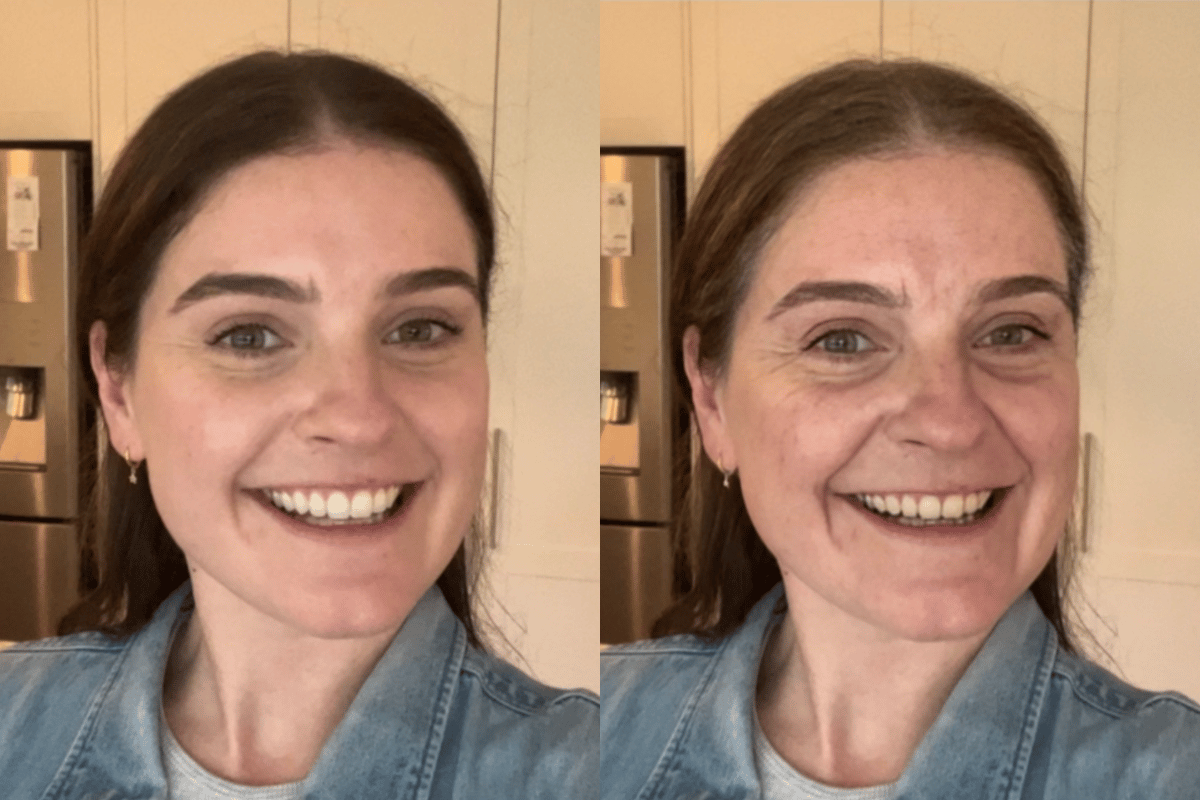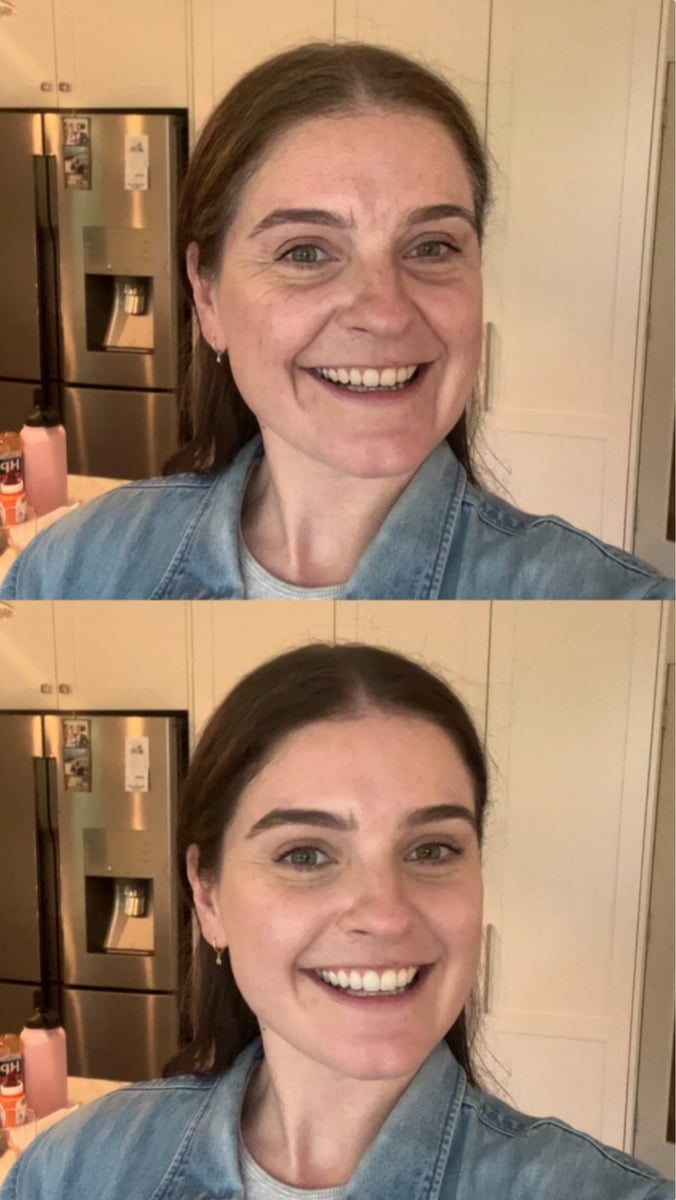
In case you're not slinking around the streets of TikTok, there's a new thing that's trending and we need to talk about it. It's called the 'age filter' — basically a really realistic filter that makes you look like an older version of yourself.
If you feel like this isn't really a new thing, that's because you might remember Snapchat came out with an ageing filter a while back. But this one is a little different. With all the recent (terrifying) developments in AI, this new TikTok version looks (and feels) far more realistic than similar filters we've seen in the past.
Now, even if you're not on TikTok, chances are you've seen and heard people sharing their thoughts and their feelings about getting a glimpse into what they'll look like in the future.
People are posting their aged faces on social media, and sharing videos of them talking with their new (old) face, pointing out the prominent wrinkles, age spots and grey hair, etc. etc.
Watch: Speaking of TikTok, here's THAT viral mascara video from Mikayla Nogueira. Post continues below.
And while a lot of people appear to be shocked and generally alarmed about the reality of how they might look one day, others are quite positive and almost comforted by the appearance of their future shelf — with some noticing comparisons to their mums or relatives who have passed away.

Top Comments